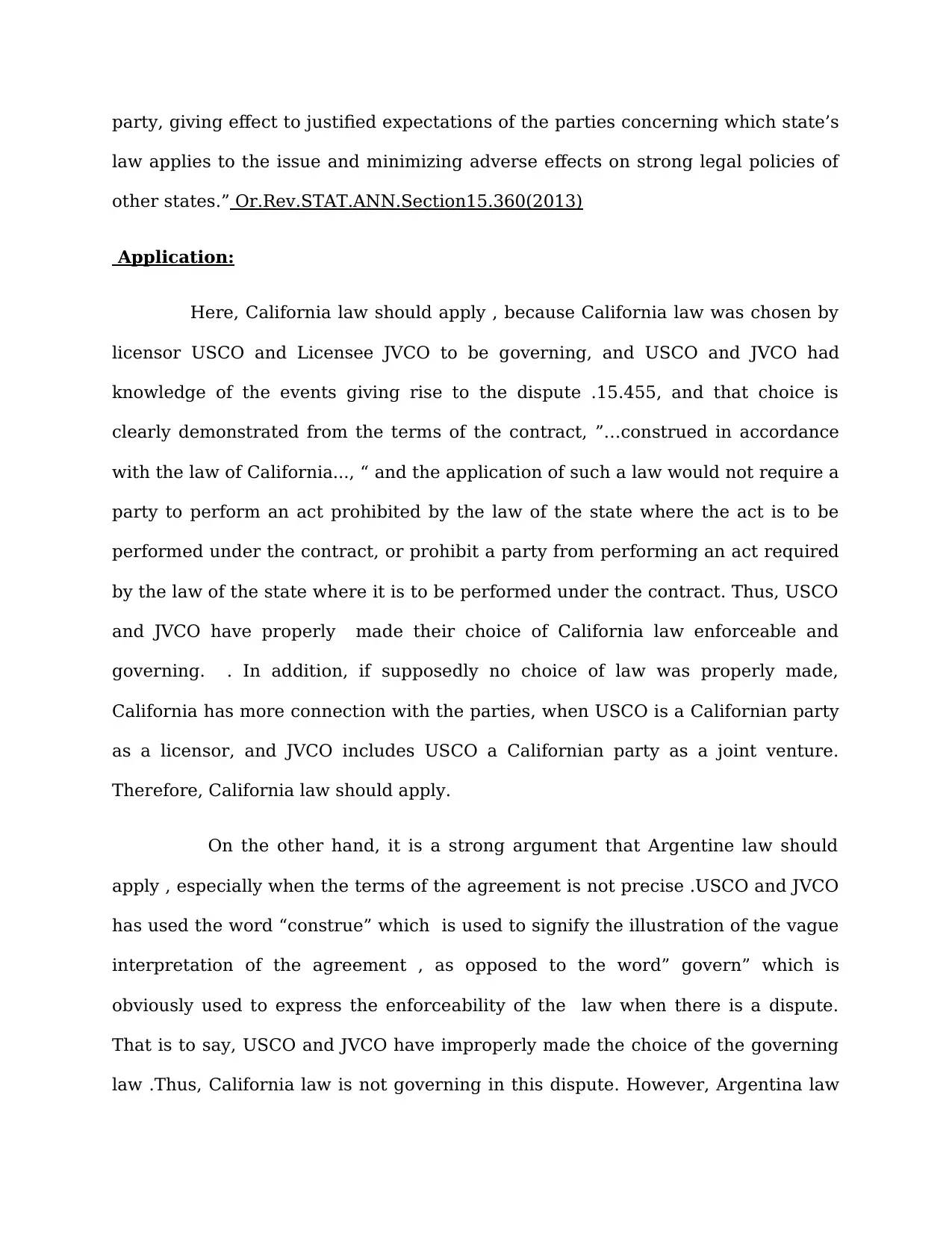California Law Application: USCO and JVCO License Agreement Dispute
VerifiedAdded on 2019/09/25
|3
|768
|159
Essay
AI Summary
This essay delves into the question of whether California law should govern a license agreement breach between USCO and JVCO. The analysis begins by establishing that the parties explicitly chose California law, as evidenced by the contract's terms. The essay then explores the application of Oregon Revised Statute sections regarding choice of law, highlighting the connection of USCO to California. A counterargument is presented, suggesting that Argentine law should apply due to the interpretation of the agreement's terms and the stronger connection to the transaction. The essay uses words like 'construe' versus 'govern' to signify the vague interpretation of the agreement. The essay ultimately concludes that California law should prevail because of the stronger connection to the involved parties, which include USCO. The essay also considers the principles of relevant connection, policy needs, and the protection against undue imposition by parties.
1 out of 3










![[object Object]](/_next/static/media/star-bottom.7253800d.svg)